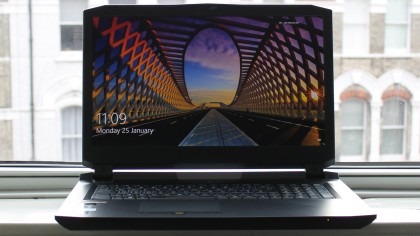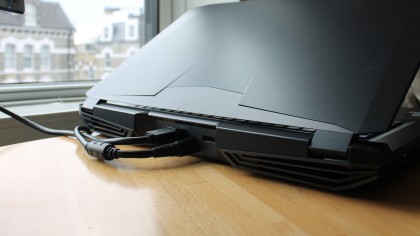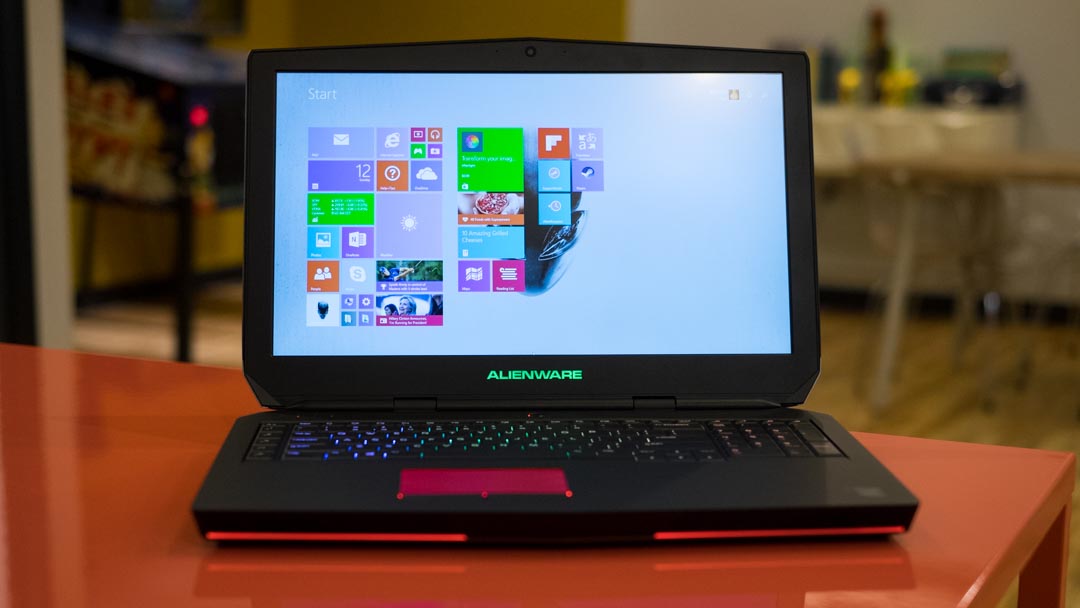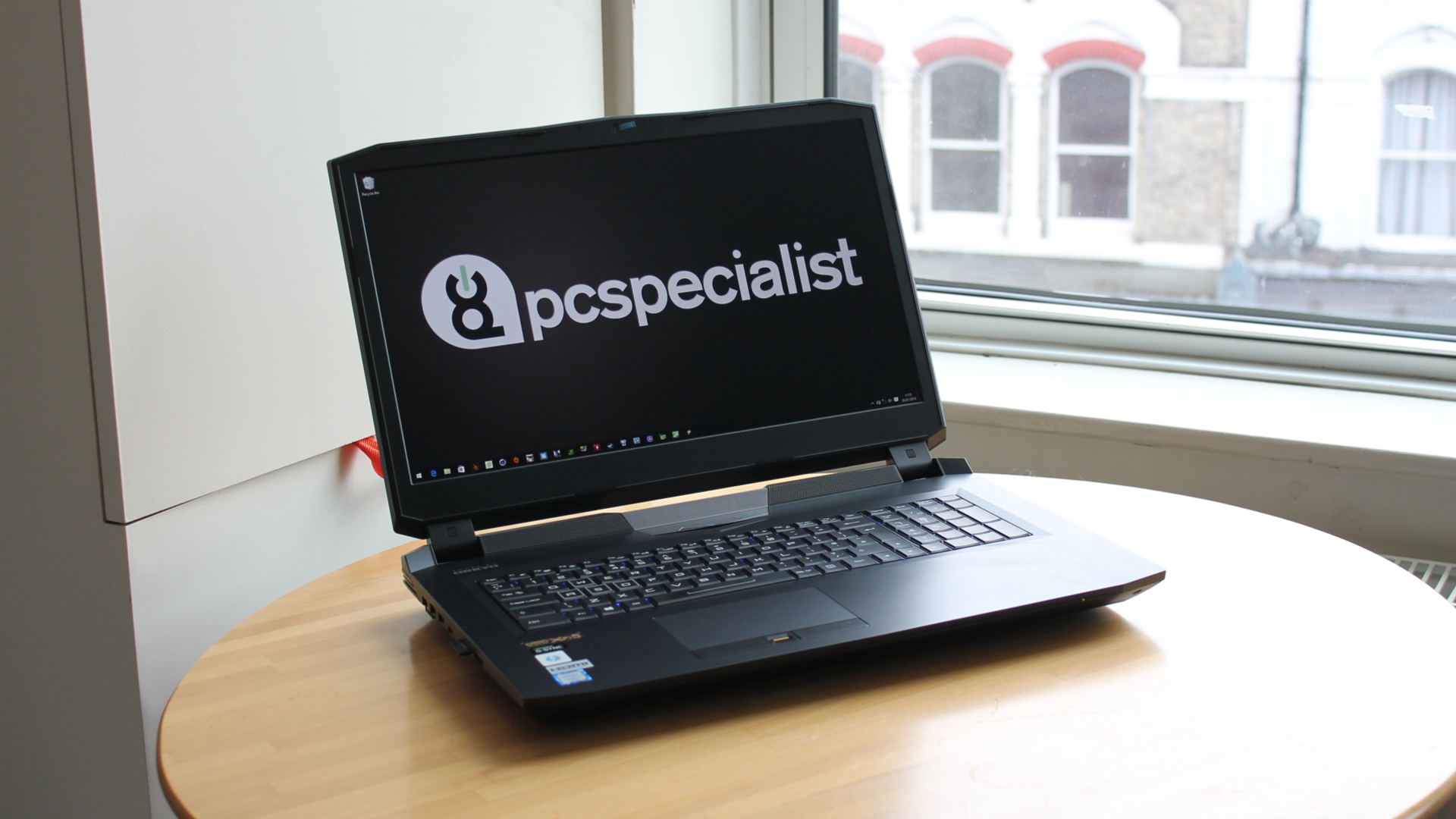TechRadar Verdict
It's big, it's heavy and it eats games alive – but the lack of a 4K display is criminal. If you've got the money and the upper body strength, the Octane II has all the power you need.
Pros
- +
Massive performance
- +
Decent 1080p display
- +
Loud speakers
- +
Vast port selection
Cons
- -
Crazily heavy
- -
No 4K option
- -
Unexciting design
- -
Poor battery life
Why you can trust TechRadar
"Buy a desktop for power, buy a laptop for mobility," was the mantra that guided PC gamers' buying choices – until now. By squeezing its desktop GTX 980 GPU into laptops, Nvidia hasn't so much thrown a spanner into the works as lobbed the full toolkit.
Configured by UK-based original design manufacturer (ODM) PC Specialist, the Octane II Pro is among the first wave of gaming laptops powered by Nvidia's desktop-class GPU. Among them are the Origin EON17-SLX, MSI GT72, Aorus X7 DT and Asus' water-cooled ROG GX700.
These monster machines have one aim: deliver gaming experiences that, until now, have only been possible on beefy desktop PCs.

I'm all for what Nvidia is trying to achieve here. As great as gaming on the go is, laptops leave me with the feeling that I'm not playing the optimal version of a game just so I can play it anywhere.
Rather than buy a gaming laptop with a 980M inside, I'd be tempted to spend extra on a 980-equipped model that delivers a true, desktop-class gaming experience – and I bet many hardcore gamers feel the same.
The trade off — at least, at first — is that early gaming goliaths like the Octane II are going to be big, heavy and expensive. The Octane is a case in point.
A 17-inch monster, it's accompanied by the type of power brick that helped popularize the term 'power brick'. Its power supply alone is heavier than some Ultrabooks. Unless you invest in a strong, large backpack, don't even consider lugging this thing around.
Sign up for breaking news, reviews, opinion, top tech deals, and more.
Black magic
Decked in two-tone black-and-gray, the Octane features a logo-less lid and a thick, solid base that doesn't flex no matter how hard you prod at it. Outwardly, there isn't much to suggest that it's a gaming laptop.
Well, save for an Alienware-styled keyboard font, angled corners and a light-up power button that's located in a recess under the center of the display. Pressing it feels like powering up the Starship Enterprise.

If you think you've seen the Octane II before, it's probably because you have. Much like Origin (the PC builder) in the states, PC Specialist shares chassis designs with other ODMs. The Octane uses Chinese company Clevo's P775M1-G chassis, which also features on the Shenker XMG U716 and the Eurocom Sky DLX7.
It's a little on the bland side compared to the flashier gaming laptops, like the Acer Predator 17 and Asus ROG GX700, that aim for a particular brand of gaming cool. If that doesn't bother you, the upshot is that you can save a wad of cash here over picking up a similarly-specced GTX 980 laptop from a big-name brand.
Affordable animal
Configured with an Intel Core i7-6700K processor, GTX 980 and Full HD (1080p) display, the Octane II costs £1,899 (around $2,648, or AUS$3,669).
Clearly, that's not spare change, but it is around a third cheaper than the MSI GT72 that comes with a Skylake Core i7-6820HK CPU, GTX 980 and Full HD display for £2,599 (around US$3,568 or AUS$5,023).
The Octane II has another rival: the Origin EON17-SLX. The US-based company's machine costs $3,463 (around £2,483 or AU$4,809) when configured with an Intel Core i7-6700K chip, a GTX 980 and 16GB of DDR4 RAM.

If you're looking to pick up a high-end gaming laptop, chances are you're also considering a 980M-equipped model. The Alienware 17 comes in at £1,782 ($2,299 or AU$3,499) for the configuration with an older Core i7-4710HQ Haswell CPU, Full HD display and 16GB of RAM. Frankly, you're paying almost as much as the Octane for less power and a flashier design.

